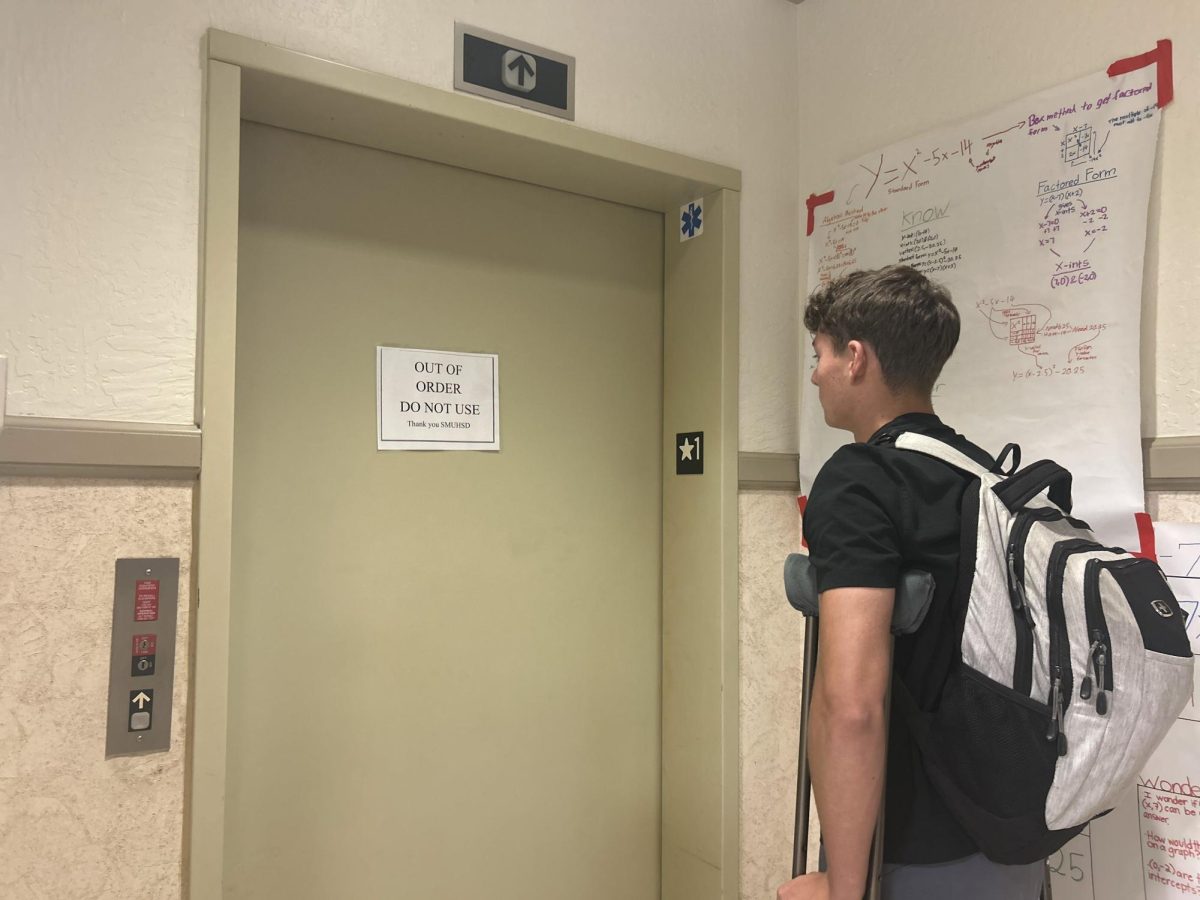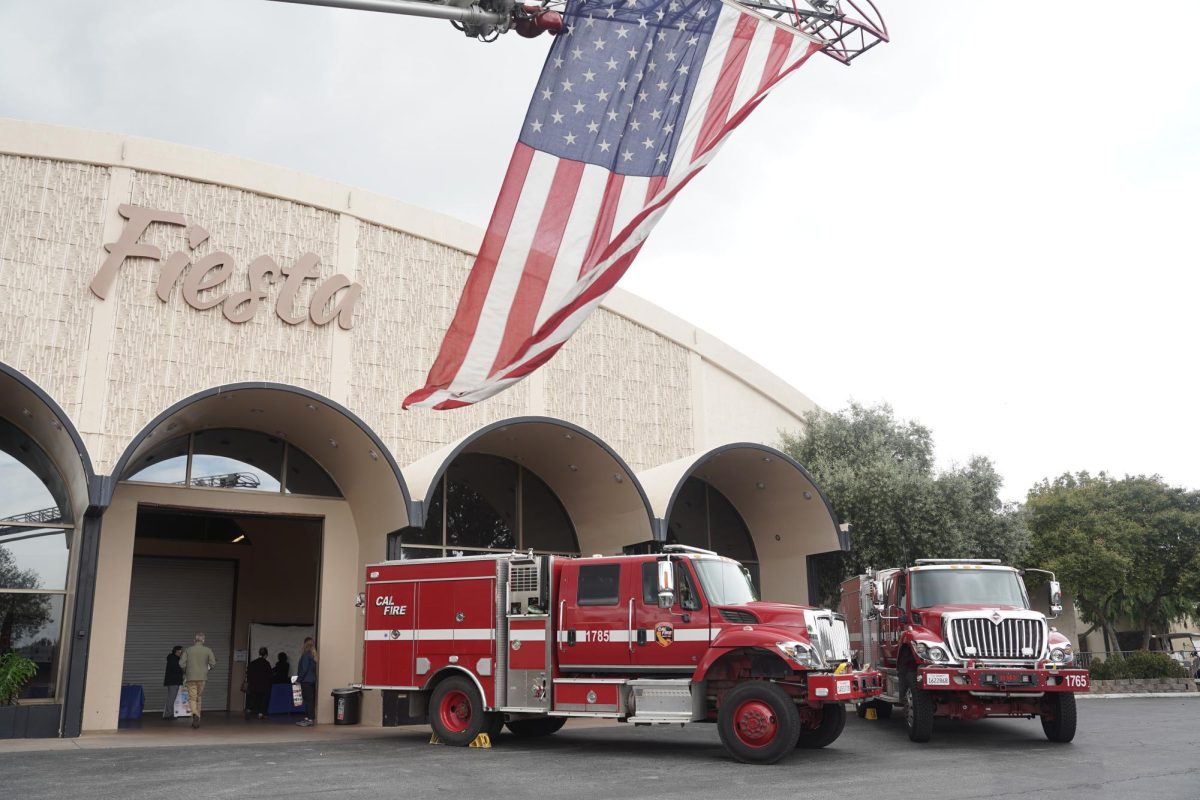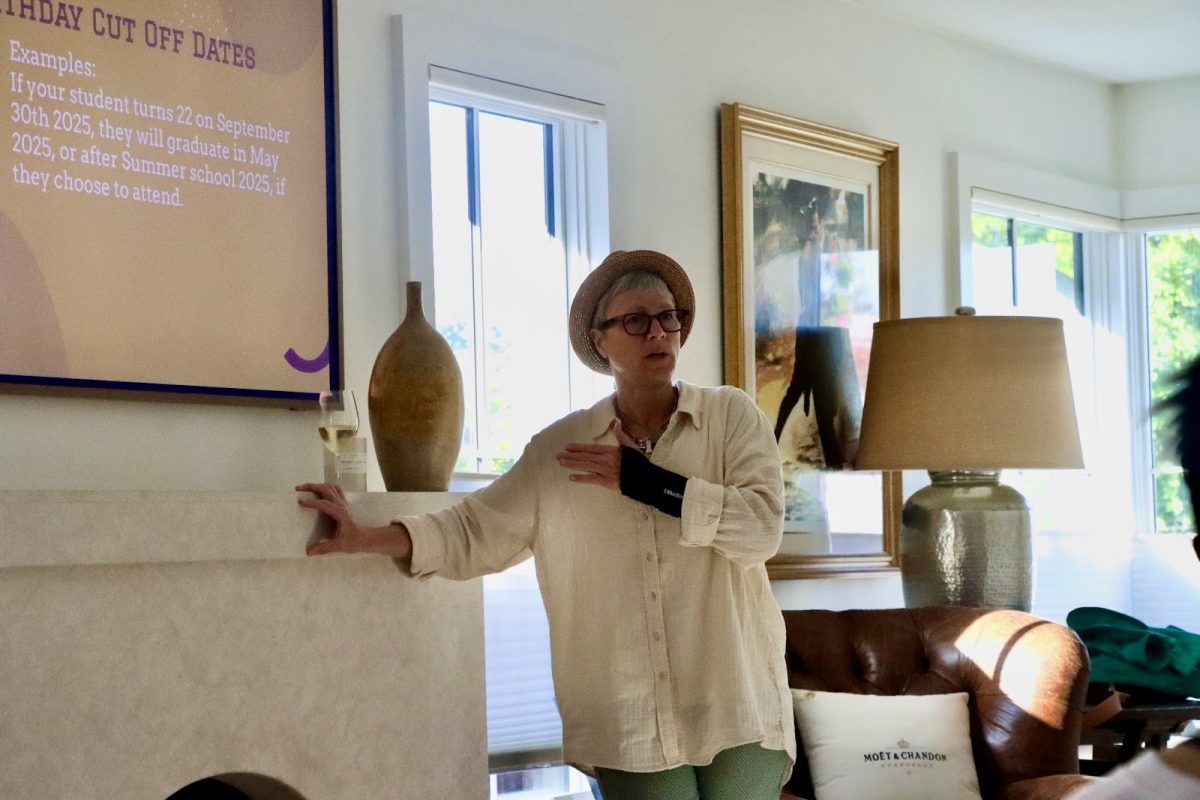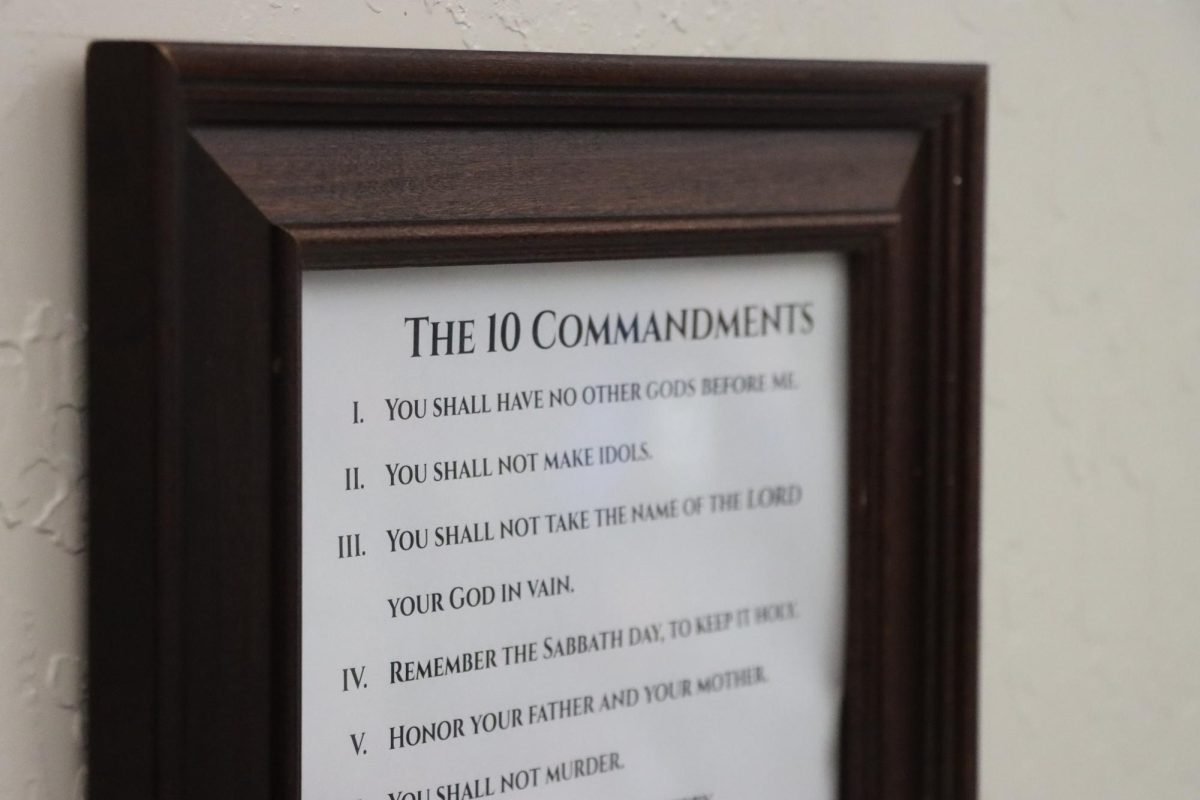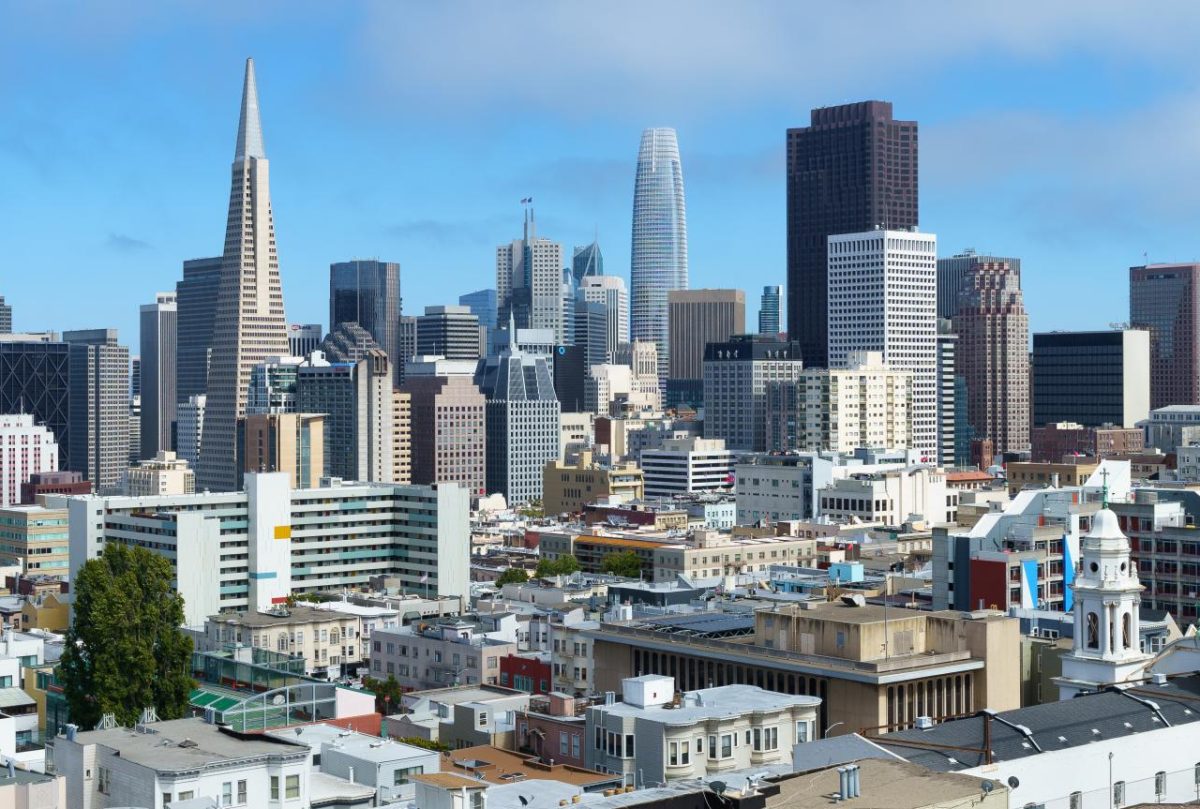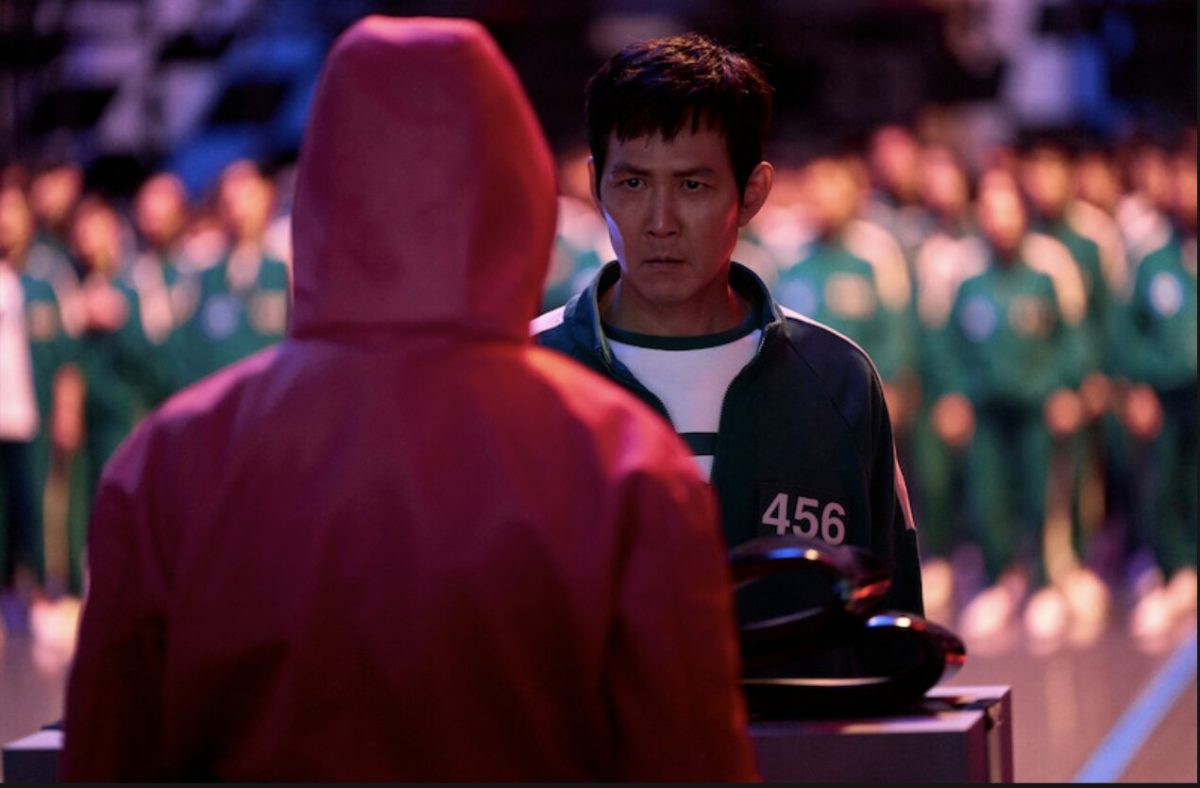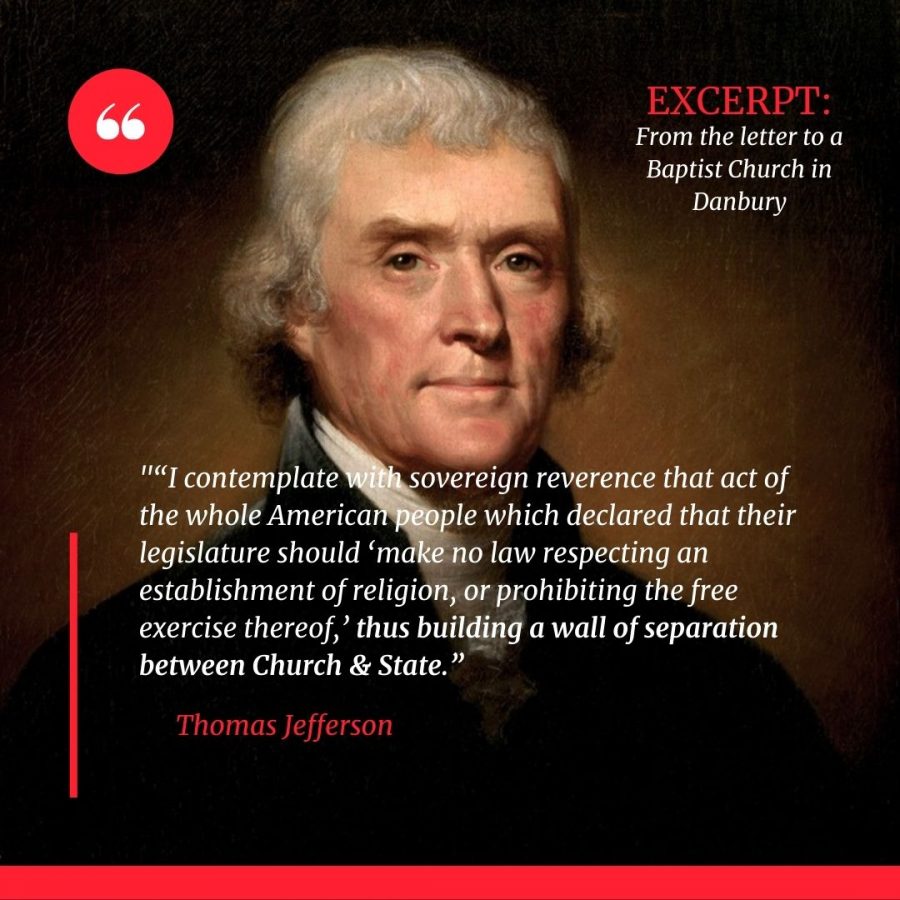Separation between church and state: What’s in it for us?
Excerpt from Thomas Jefferson’s letter to a Baptist Church in Danbury.
January 31, 2021
It started with the Founding Fathers during the birth of America. The revolution was over, colonists were happy to get away from a monarchy that believed in divine right to the crown. The foundation of America was set on democracy. The Founding Fathers, also known as “The Sons of Enlightenment,” were especially keen on a secular country because it was integral to their vision of democracy. After that, the Constitution and the First Amendment, which mentions the freedom of religion. Even the Founding Fathers knew the importance of religious matters, but they recognized them as a social aspect rather than something the government should take part in.
Then, Thomas Jefferson wrote a letter in 1802 to the Danbury Baptist Association. Jefferson’s opinion was that, “Legislature should ‘make no law respecting an establishment of religion, or prohibiting the free exercise thereof,’ thus building a wall of separation between Church & State.” Basically saying it should be a law to separate the two entities.
After the Second Great Awakening, in the early 19th century, religion became more apart of people’s lives.There was a mass amount of preaching and new religious reforms such as temperance being spread across the country. The government wanted to make sure its own self stayed secular. So, 76 years after Jefferson wrote that letter, the government took his belief and tacked it onto the Establishment Clause. It made sure everyone knew where the government stood with religion.
Despite the industrialization of our society and the increase in public education, these fear are still present with the expansion of diversity. The Establishment Clause holds more importance now than when it was originally written.
In the case Everson v. Board of Education, the Supreme Court argued over taxpayer funding for private schools. The case was about whether or not private school kids should be allowed to use publicly funded school buses. In the end, the Court ruled in a 5-4 decision saying that the funding does not “break the wall of separation,” seemingly blurring the lines between church and state.
However, I go to Burlingame. A public school that doesn’t need a court case to fund school buses. So where does that leave us?
Public schools are supposed to be secular, meaning that no teachers or administrators can force us to study any form of religion. With that said, I think this secularization is even more important at a school like Burlingame, considering religious diversity.
At a school such as ours, it is necessary to have secular rules to ensure balance. We use the foundation our government gave us to make sure everyone feels safe and comfortable when talking about their religion. And keeping our tolerance in check is something that continues to push us forward toward a path of acceptance across the globe by being the example.
That is a country I want to fight for. So yeah, separation between church and state? An awesome law to have.



